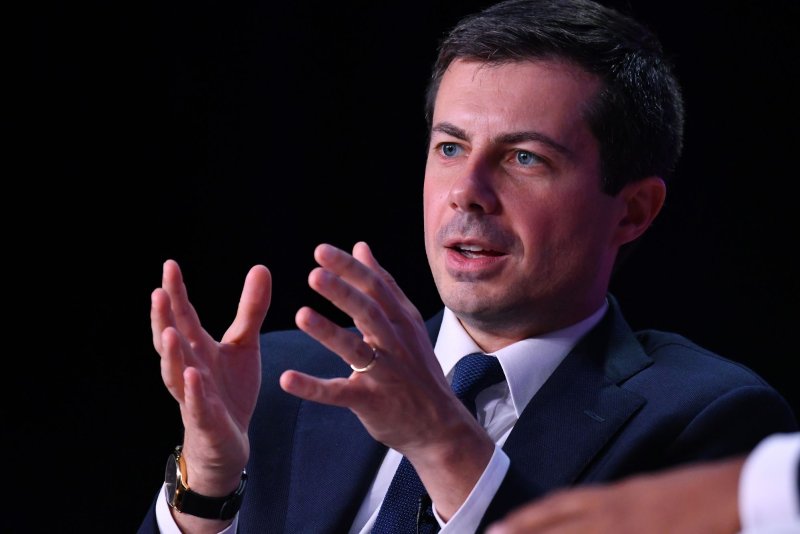Democratic presidential hopeful Pete Buttigieg answers audience questions at a criminal justice forum on October 26 at Benedict College in Columbia, South Carolina. Photo by Richard Ellis/UPI |
License Photo
Nov. 8 (UPI) -- Democratic presidential candidate Pete Buttigieg unveiled a $1 trillion strategy Friday that aims to enhance middle-class America with investments for housing, child care and tuition-free higher education.
The plan earmarks hundreds of billions for federal funding to help pay for child care, make available public colleges for students whose families make less than $100,000 per year and expand the earned income tax credit. It also creates affordable housing for more than 7 million families and after-school programs for children of middle-class families.
The plan is called "An Economic Agenda for American Families: Empowering Working & Middle Class Americans to Thrive."
"As president, I will measure success not just by the size of the stock market or gross domestic product, but by whether working and middle-class families are succeeding," Buttigieg said.
"I will use public enforcement, public investments, and public options to make the economy deliver for all Americans, not just those at the top."
Buttigieg adviser Austan Goolsbee said the plan targets critical needs, unlike proposals from other candidates like Sens. Bernie Sanders Elizabeth Warren.
"By focusing on the people who have the greatest need, or for whom this is the most relevant - the middle class and below - that allows you to do this with pay-fors that are realistic," said Goolsbee, who was an adviser to former President Barack Obama.
Buttigieg's plan also calls for a public-option healthcare plan, challenges pharmaceutical companies to lower drug prices, increases the federal minimum hourly wage to $15 and creates a national fund for medical and family leave for lower-income workers. It also calls for stronger protections for unions and allows gig economy workers to organize.
"The next generation has always been better off than the previous, but we risk breaking that compact and deepening inequality if we don't change course fast to make big, innovative and effective public investments in the next generation and in the economy they will inherit," Buttigieg states in the outline of his plan.















